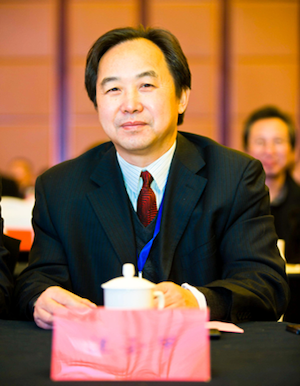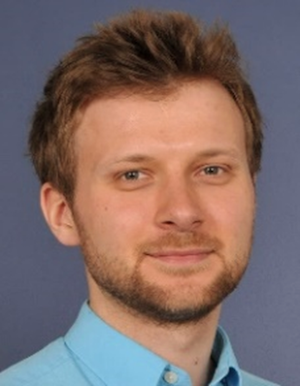1st Workshop on Digital Solutions for Natural Event Management: Leveraging IoT and Drones for Biodiversity Conservation and Disease Control
Track ID: Work-16
Description
With the increasing occurrence of global natural phenomena leading to detrimental climate changes and natural disasters, it is important to explore innovative solutions that can assist in mitigating the impact of such events. IoT and drone technologies can provide valuable insights and data in real-time, supporting rescue workers to provide a fast, efficient response and proactive measures to prevent disasters. The workshop will examine how IoT sensors and drones can be integrated to monitor and predict natural disasters such as floods and wildfires, as well as their impact on biodiversity. Participants will learn about the latest developments in drone technology and its potential for use in disaster management, including drone-based data collection and mapping, search and rescue operations, delivery of critical supplies, and communication relays between IoT sensors. Additionally, the workshop will provide the opportunity to discuss the role of IoT and drone technologies in disease control. Participants will explore how IoT can help to monitor and track the spread of diseases in affected areas, identify potential hotspots, and provide real-time alerts to emergency responders. The workshop will explore technologies to address challenges of deploying IoT solution in rural areas, including communication, autonomous operation, localization, video analytics and Artificial Intelligence/Machine Learning. The workshop will feature experts in the fields of IoT, drone technology, biodiversity conservation, and disease control, who will share their experiences and knowledge on the topic. The hands-on technical session will enable participants to apply the latest digital solutions to natural disaster management, biodiversity conservation, and disease control.
Objective and Motivation
The objective and motivation of this workshop will highlight the latest advances in the design and implementation of IoT devices for natural disaster response and biodiversity monitoring. This includes IoT device at the ground, in the air and at sea, and will focus on challenges in deploying such sensors in nature. We invite contributions on but not limited to the following topics:
- Edge computing for real-time analysis of natural disasters and wildlife
- IoT sensors for applications in nature
- Computer vision and analytics, Geo-sensing for nature monitoring, e.g. fire detection, wildlife or crop monitoring
- Communication in remote areas
- Design of drones for effective flight and disaster response
- Applications of drone & mobile robot navigation in nature through AI and ML
- Vision-based, map-based or landmark-based mobile robot navigation
- Co-operative, fast and 3D SLAM & 3D SLAM for edge deployment
- Non-Line-of-Sight (NLOS) localization using AI and ML
- Wi-Fi, 5G, 6G, Ultra-wideband (UWB) and Bluetooth Low Energy (BLE) localization
Novelty
Some highlights in the technical innovation may include the novel implementation of
- Precise GNSS robot navigation in rural areas
- Perching drones for wildlife monitoring and biodiversity
- Collaborative sensing and communication between aerial and ground-based devices
- Data analytics for biodiversity and disease control
Workshop Length
2 hours (1 session)
Paper Submission Deadline
Important Dates:
- Deadline for Paper Submissions: July 30th, 2023
- Acceptance Notification: September 8th, 2023
- Deadline for Camera-Ready Paper Submissions: September 29th, 2023
- Deadline for Presentation Submissions: October 2nd, 2023
Please submit your paper for this Workshop using the link to eWorks:
Call For Papers:
If you have any questions, please contact Dr. Henrik Hesse: henrik.hesse@glasgow.ac.uk
Chairs
YunJia Wang: China University of Mining and Technology
Yunjia Wang, Ph.D., second-level professor and doctoral supervisor of China University of Mining and Technology, Xuzhou China. He is the National Outstanding Doctoral Dissertation Award, National Excellent Teacher, Special Government Allowance of the State Council, Sun Yueqi Youth Science and Technology Award, Jiangsu "333 Project" Young and Middle-aged Science and Technology Leading Talent, Jiangsu University Young Academic Leader, National Surveying and Mapping Geographic Information Technology Contribution Award other title recipients. He used to be the Dean of the School of Environment and Surveying and Mapping, China University of Mining and Technology, and is currently the Director of the Professor Committee of the School of Environment and Surveying and Mapping, China University of Mining and Technology, the Director of the Key Laboratory of Land Environment and Disaster Monitoring of the Ministry of Natural Resources, and the director of the National Mine Measurement Virtual Simulation Experiment Teaching Center. He is also a member of the Surveying and Mapping Science and Technology Discipline Evaluation Group of the Academic Degrees Committee of the State Council, the chairman of the Mine Surveying Professional Committee of the Chinese Society of Surveying and Mapping, and the vice chairman of the China Satellite Navigation and Positioning Association Indoor Navigation and Positioning Professional Committee. He has researched indoor and outdoor seamless positioning, remote sensing and geographic information engineering for many years and presided over or participated in more than 50 key projects of the National Natural Science Foundation of China, general projects, international cooperation projects, National Social Science Foundation projects, 863 projects, National Science and Technology Support.
Chee Kiat Seow: University of Glasgow
Dr. Chee Kiat, Seow (M’ 02–SM’ 13) received the Ph.D. degree from Nanyang Technological University, in 2009. Before moving into academic and research landscapes, he was once the senior consultant/programme manager and system architect at Defence Science Technology Agency (DSTA) and STE Electronics, Singapore respectively to architect and lead a programme of engineers to revolutionise, instrument the concept and implementation of various wireless communications infrastructure, network and security projects. From 2011 to 2018, he was a senior Research Fellow and then a senior lecturer with the School of Electrical and Electronics Engineering, Nanyang Technological University, Singapore. He is currently an assistant professor at University of Glasgow, School of Computing Science, UK since 2019. His primary research interests comprise of localization methodology/algorithms, physical cyber security, big data and artificial intelligence/machine learning for various applications such as robotics and drone. He is actively involved in the various research projects of Non line of Sight (NLOS) Localization under GPS denied scenarios, SLAM Navigation and GNSS cybersecurity.
Henrik Hesse: University of Glasgow
Dr Henrik Hesse is Assistant Professor in Aerospace Systems with the University of Glasgow in partnership with Singapore Institute of Technology. Henrik has a PhD from Imperial College London (2013) where he investigated reduced-order modelling approaches for load control in flexible aircraft. During his postdoctoral appointment at ETH Zurich (2014-2016), Henrik developed novel estimation and control methods for the autonomous operation of tethered drones for a wind power prototype system. He has recently ventured into robotics focusing on sensor fusion and localization of unmanned aerial vehicles in GPS-denied environments which led to several titles in robotics competitions. His current research focuses on modelling, design and control of autonomous systems in the context of their practical application.
Victor Wang: Singapore Institute of Technology (SIT)
Dr Victor Wang is currently an Associate Professor in SIT. He has a PhD in Computational Aerodynamics from Loughborough University (UK), and his main research interest lies in developing numerical methods for Aerospace Applications, such as propulsions systems, wing designs, Flight Dynamics and optimizing flight formations.



























